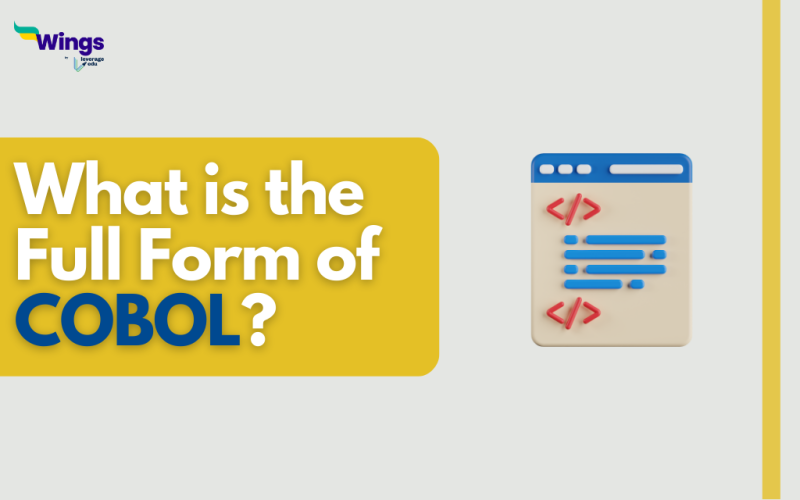The full form of COBOL is Common Business Oriented Language. This programming language is primarily used in large-scale enterprises, the army, government agencies, and some banks in the USA. It is a high-level programming language which is the second-oldest language after FORTRAN. This language has undergone numerous modifications from the 1950s till the early 2000s. COBOL is not supported by modern devices, owing to which it is known as Legacy Language. Common Business Oriented Language is used in mainframe computer applications of large-scale and conventional organisations for transaction and task processing.
History of COBOL
Given below is a brief history of COBOL:
- Common Business Oriented Language was initially discovered in the 1950s by Grace Hopper.
- COBOL-60 was inducted into the Data Systems Languages in 1959.
- International Business Machines (IBM) started using COBOL as their primary language in 1962.
- A standard version of this programming language was accepted by the American National Standards Institute (ANSI) in 1968.
- Common Business Oriented Language was accepted universally for commercial use in 1970.
- Since 1960, the programming language has undergone several modifications. Some of the versions of COBOL include COBOL-68, COBOL-74, COBOL-85, and COBOL-2002. These versions were modified by the ANSI.
Features of COBOL
Key features of Common Business Oriented Language are as follows:
- Highly comprehensive
- Creates long-lasting and easily manageable applications
- Simple to understand
- Curates systems that can handle large amounts of data
- Simple framework
- Creates portable systems
- Allows term connector and long names characters up to 30 characters
Advantages of COBOL
Listed below are some of the benefits of Common Business Oriented Language:
- It is the best-suited language for batch jobs, reporting, file access, and sequential processing.
- Used in bank applications, military applications, insurance applications, and government applications.
- Inclusive of numerous data types such as Boolean, Alphabetic, numeric, alphanumeric, index, object, and pointer.
Also Read: Pursue Computer Science Abroad
This was all about COBOL full form. Visit our Full Form Page to discover more intriguing articles about full forms. You can also check out the consolidated 300+ full forms list!
 One app for all your study abroad needs
One app for all your study abroad needs













